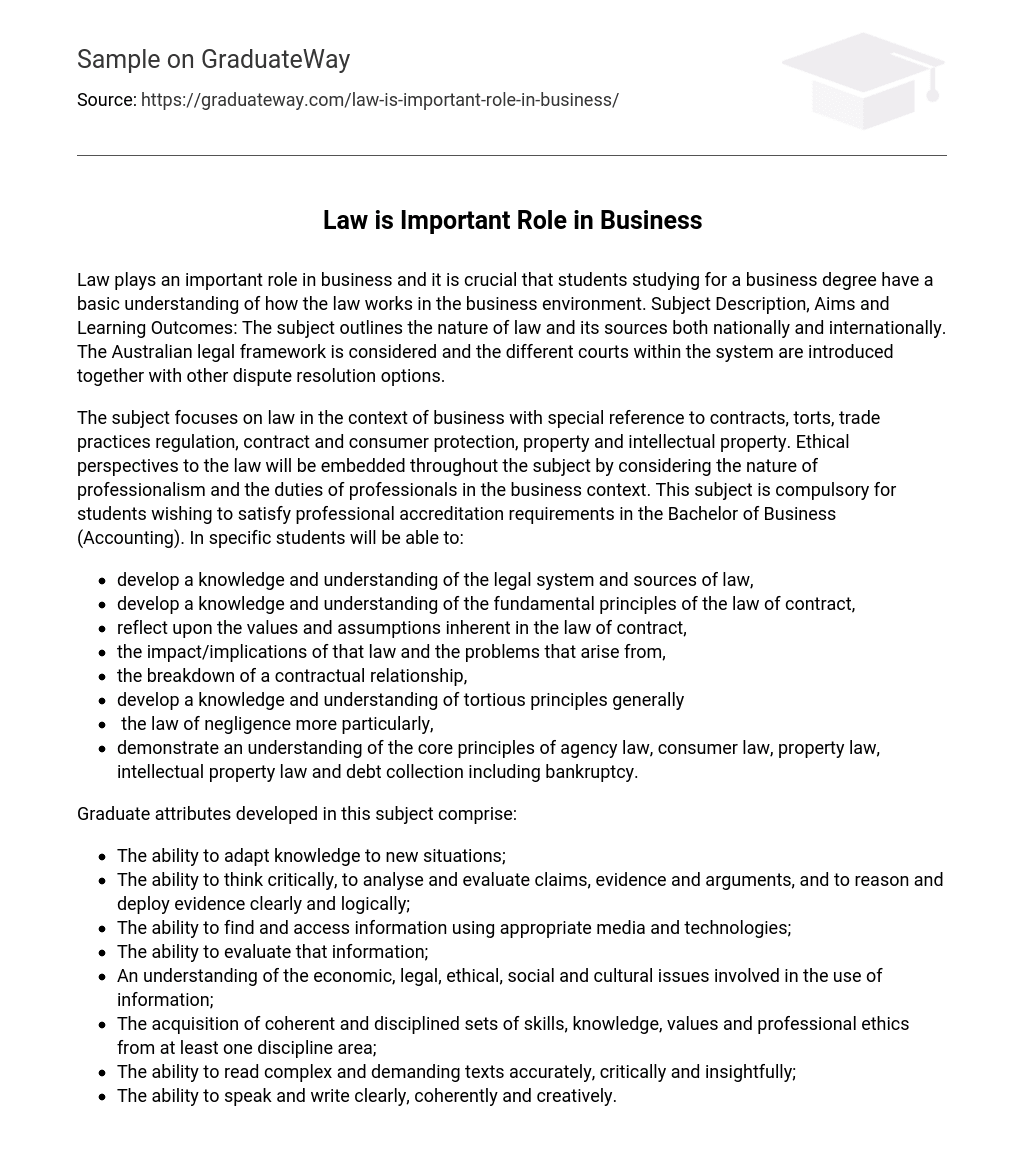Law plays an important role in business and it is crucial that students studying for a business degree have a basic understanding of how the law works in the business environment. Subject Description, Aims and Learning Outcomes: The subject outlines the nature of law and its sources both nationally and internationally. The Australian legal framework is considered and the different courts within the system are introduced together with other dispute resolution options.
The subject focuses on law in the context of business with special reference to contracts, torts, trade practices regulation, contract and consumer protection, property and intellectual property. Ethical perspectives to the law will be embedded throughout the subject by considering the nature of professionalism and the duties of professionals in the business context. This subject is compulsory for students wishing to satisfy professional accreditation requirements in the Bachelor of Business (Accounting). In specific students will be able to:
- develop a knowledge and understanding of the legal system and sources of law,
- develop a knowledge and understanding of the fundamental principles of the law of contract,
- reflect upon the values and assumptions inherent in the law of contract,
- the impact/implications of that law and the problems that arise from,
- the breakdown of a contractual relationship,
- develop a knowledge and understanding of tortious principles generally
- the law of negligence more particularly,
- demonstrate an understanding of the core principles of agency law, consumer law, property law, intellectual property law and debt collection including bankruptcy.
Graduate attributes developed in this subject comprise:
- The ability to adapt knowledge to new situations;
- The ability to think critically, to analyse and evaluate claims, evidence and arguments, and to reason and deploy evidence clearly and logically;
- The ability to find and access information using appropriate media and technologies;
- The ability to evaluate that information;
- An understanding of the economic, legal, ethical, social and cultural issues involved in the use of information;
- The acquisition of coherent and disciplined sets of skills, knowledge, values and professional ethics from at least one discipline area;
- The ability to read complex and demanding texts accurately, critically and insightfully;
- The ability to speak and write clearly, coherently and creatively.





